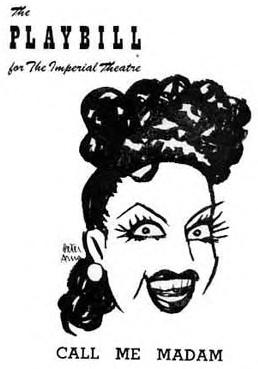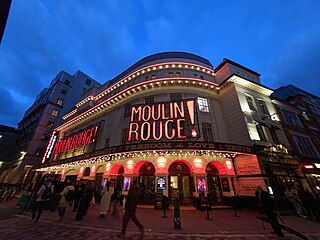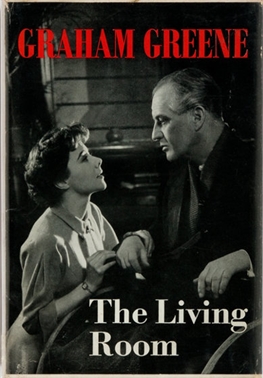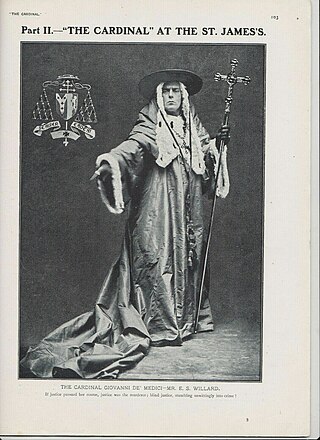
Kiss Me, Kate is a musical with music and lyrics by Cole Porter and a book by Bella and Samuel Spewack. The story involves the production of a musical version of William Shakespeare's The Taming of the Shrew and the conflict on and off-stage between Fred Graham, the show's director, producer, and star, and his leading lady, his ex-wife Lilli Vanessi. A secondary romance concerns Lois Lane, the actress playing Bianca, and her gambler boyfriend, Bill, who runs afoul of some gangsters. The original production starred Alfred Drake, Patricia Morison, Lisa Kirk and Harold Lang.

Alastair George Bell Sim was a Scottish actor, who began his theatrical career at the age of thirty. He quickly became established as a popular West End performer, remaining so until his death in 1976. Starting in 1935, he also appeared in more than fifty British films, including an iconic adaptation of Charles Dickens’ novella A Christmas Carol, released in 1951 as Scrooge in Great Britain and as A Christmas Carol in the United States. Though an accomplished dramatic actor, he is often remembered for his comically sinister performances.

Hay Fever is a comic play written by Noël Coward in 1924. Its first production was in the West End in 1925 with Marie Tempest as Judith Bliss. A cross between high farce and a comedy of manners, the play is set in an English country house in the 1920s, and deals with the four eccentric members of the Bliss family and their outlandish behaviour when they each invite a guest to spend the weekend. The self-centred behaviour of the hosts finally drives their guests to flee while the Blisses are so engaged in a family row that they do not notice their guests' furtive departure.

Call Me Madam is a Broadway musical written by Howard Lindsay and Russel Crouse, with music and lyrics by Irving Berlin.

Una O'Connor was an Irish-born American actress who worked extensively in theatre before becoming a character actress in film and in television. She often portrayed comical wives, housekeepers and servants. In 2020, she was listed at number 19 on The Irish Times list of Ireland's greatest film actors.

Bianca Cappello was an Italian noblewoman, the Grand Duchess consort of Tuscany by marriage to Francesco I de' Medici, Grand Duke of Tuscany. She was Francesco's mistress that later married him to became his consort. Coincidentally, the creation of the fortunate term serendipity by the writer Horace Walpole is due to a portrait of Bianca.

The Piccadilly Theatre is a West End theatre located at the junction of Denman Street and Sherwood Street, near Piccadilly Circus, in the City of Westminster, London. It opened in 1928.

Sir John Selby Clements was a British actor and producer who worked in theatre, television and film.

My Fat Friend is a play by Charles Laurence.

Wilfred Walter was an English film and theatre actor, sometimes credited as Wilfrid Walter. He was born Franz Wilfrid Walter, son of the actor Richard Walter.

To Dorothy, a Son is a 1950 comedy play by the British writer Roger MacDougall. The plot revolves around a complex inheritance in which the American ex-wife of a man tries to prevent his current pregnant wife giving birth before a certain day, in order that she can claim the money.

The Living Room is a 1953 play by Graham Greene
The Outsider is a play by the British writer Dorothy Brandon. It portrays the struggle of an unorthodox medical practitioner to gain acceptance by the medical establishment. It was subsequently revised to show the unconventional triumphing over the conventional, whereas the play had originally had the opposite ending.

There's Always Juliet is a 1931 comedy play by the British writer John Van Druten about an American architect who falls in love with an Englishwoman.

Maidie Andrews was an English actress and singer who, with a career that spanned six decades, was a child actress and later a stage beauty who appeared in musical comedy including the original London productions of No, No, Nanette (1925) and Cavalcade (1931). The latter years of her career saw her taking roles in television and film.

The Cardinal is a 1901 historical play by the British writer Louis N. Parker. It is set in Renaissance Italy at the height of the power of the Medici Dynasty.

Escapade is a 1952 play by the British writer Roger MacDougall.

Under the Counter is a musical comedy composed by Manning Sherwin from a book by Arthur Macrae with lyrics by Harold Purcell. The plot is centred around shortages and black market activity during wartime rationing.

Lace on Her Petticoat is a play by the British writer Aimée Stuart. It takes place in a cottage on an island off the southwest coast of Scotland in the late Victorian era.

Murder Mistaken is a 1952 thriller play by the British author Janet Green. It first appeared at the Prince of Wales Theatre in Cardiff under the title Teddy Bare's Picnic. It then transferred to London's West End under its new title first at the Ambassadors Theatre and then at the Vaudeville Theatre. It's West End run lasted 156 performances between 4 November 1952 and 28 March 1953. The West End cast included Derek Farr, Anthony Marlowe, Phyllis Morris, Iris Hoey, Brenda de Banzie, Patricia Burke and Rosalie Crutchley. It appeared on Broadway under the alternative title Gently Does It, lasting for thirty seven performances at the Playhouse Theatre. Green wrote a novelisation in 1953 with Leonard Gribble.


















